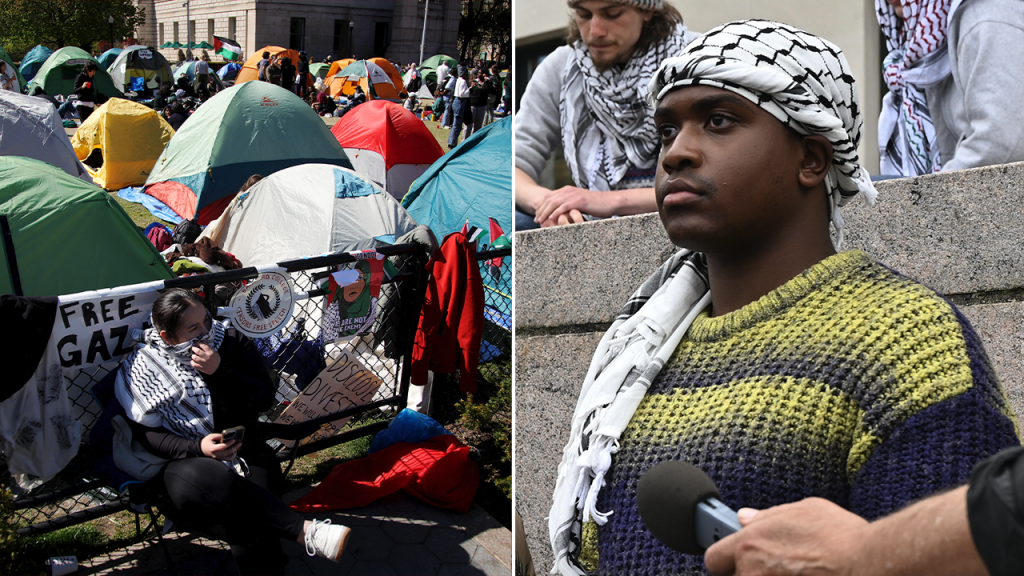The White House criticized a Columbia University student, Khymani James, for making inflammatory remarks about “murdering Zionists” during an official university inquiry in January. The comments, deemed dangerous and appalling by the White House, received swift condemnation from President Biden, who emphasized that violent rhetoric, hate speech, and antisemitic remarks have no place in America. James expressed regret for his statements, with a White House deputy press secretary stating that any White House employee making similar remarks would be fired immediately. Columbia University banned James from the campus, with disciplinary proceedings underway, emphasizing that calls of violence and targeting individuals based on their religious, ethnic, or national identity are unacceptable and violate university policy.
The resurfaced video of James making controversial statements sparked outrage and concern among the Columbia University community, with many feeling threatened by the atmosphere and language being used. The university reiterated its commitment to academic freedom and an environment free from discrimination and harassment for all members of the community. James, who had previously been quoted as a spokesman for anti-Israel protests at Columbia, faced backlash for his comments, including calls for colleges to shut down anti-Israel encampments amid death threats toward Jews. President Biden, who has not visited Columbia University, faced criticism for his response to questions about condemning antisemitic protests on college campuses, with some pointing to a need for stronger action against such behavior.
The incident involving Khymani James at Columbia University highlighted the ongoing challenges surrounding freedom of speech, hate speech, and antisemitism on college campuses. The university’s swift response in banning James from campus and initiating disciplinary proceedings sent a message that such behavior would not be tolerated. The remarks made by James drew attention to the need for greater awareness and education about the impact of hate speech and discrimination on individuals and communities. The White House’s condemnation of James’ remarks underscored the government’s commitment to fighting antisemitism and violent rhetoric in all its forms.
The controversy surrounding Khymani James at Columbia University shed light on the complexities of navigating discussions about Zionism, antisemitism, and freedom of speech in academic settings. The incident raised questions about the boundaries of acceptable speech on college campuses and the responsibility of institutions to address hate speech and discriminatory behavior. President Biden’s response to questions about antisemitic protests on college campuses highlighted the need for a comprehensive approach to combatting hate speech and fostering a more inclusive and respectful environment for all students. The incident served as a reminder of the importance of ongoing dialogue and education about the impact of words and actions on individuals and communities.
In conclusion, the incident involving Khymani James at Columbia University prompted a strong response from the White House and university officials, emphasizing the need to address hate speech and discrimination in all its forms. The actions taken by Columbia University to ban James from campus and initiate disciplinary proceedings underscored the institution’s commitment to creating a safe and inclusive environment for all members of the community. The incident sparked broader conversations about freedom of speech, antisemitism, and the responsibility of institutions to address hateful behavior. Moving forward, there is a need for ongoing education, dialogue, and action to combat hate speech and promote a culture of respect and tolerance on college campuses and beyond.


